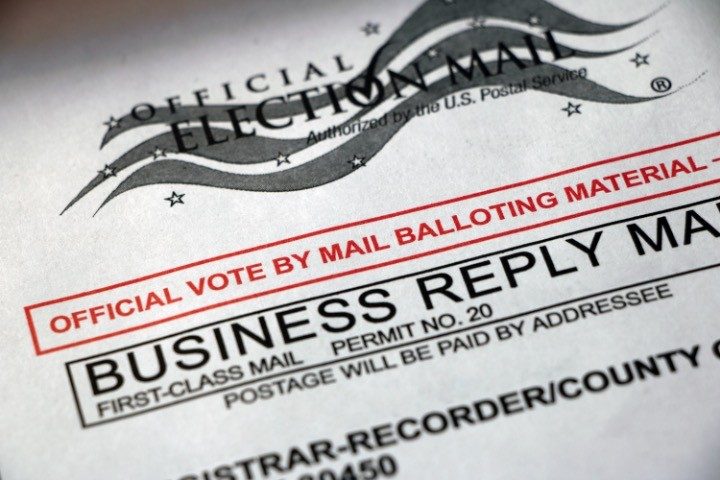
A former official with the Milwaukee Election Commission was found guilty of felony misconduct in public office in connection with obtaining false military ballots for the 2022 midterm elections. Kimberly Zapata, the former deputy director of the City of Milwaukee Election Commission, was fired in 2022 after she created three military absentee ballots and sent them to a Republican lawmaker in Wisconsin.
In addition, Zapata was found guilty of three misdemeanor charges of making false statements to obtain absentee ballots. She faces up to five years in prison, with sentencing scheduled for May 2.
Zapata was fired in 2022 after it was found that she mailed the three military absentee ballots to GOP lawmaker Representative Janel Brandtjen. At the time Brandtjen was the chair of the Assembly on Campaigns and Elections, a prominent voice questioning election integrity in Wisconsin.
“[Brandtjen] is the most vocal election fraud politician that I know of, and I thought that maybe this would make her stop and think and redirect her focus away from these outrageous conspiracy theories to something that’s actually real,” Zapata said in a police interview after the crime.
According to Zapata, she made up the names on the ballots, which she obtained with fraudulent information including fake Social Security numbers, so that no one would be harmed.
“I did not think it through,” she told police. “I didn’t have some manipulative plan.”
Zapata claimed that she was attempting to expose a true vulnerability in the election system as opposed to what she called “outrageous conspiracy theories” of election fraud.
Milwaukee Mayor Cavalier Johnson, who fired Zapata in 2022, didn’t buy the excuse that the election official was somehow acting as a whistleblower.
“At the time of Zapata’s removal from … Milwaukee’s Election Commission, I said it does not matter that this might have been an effort to expose a vulnerability that state law created,” Johnson said in a statement. “It does not matter that City of Milwaukee ballots were not part of this. Nor does it matter that there was no attempt to vote illegally or tamper with election results. Fundamentally, the actions were a violation of trust.”
Nevertheless, defense attorneys attempted to make the case that Zapata was, essentially, acting as a whistleblower.
“What she did was act to illuminate a gap between the American ideal of a perfect democracy and the facts as they are, which is there is a gap, a flaw in Wisconsin’s electoral system,” said Zapata attorney Daniel Adams.
Adams further argued that Zapata’s actions were brought on because of personal and professional stress, and that she was guilty only of an “imperfect action, but a truthful action, what was going on.”
But the district attorney also wasn’t buying the “whistleblower” argument.
“The appropriate way to raise a concern is to bring forth information, it’s not to commit a crime,” said Assistant District Attorney Matthew Westphal. “If Ms. Zapata felt this information needed to be brought to light, there was multiple, legitimate avenues she could have taken. She chose instead to take the avenue of breaking the law.”
“This was not acting as a guardian of our elections, a guardian of our democracy,” Westphal said. “This was her deserting her duty to protect and secure our elections.”
One thing Zapata’s actions did confirm was that the long-term push toward mail-in ballots is rife with pitfalls and clearly not a proper way to conduct elections. She requested fake ballots from three different municipalities, Menomonee Falls, Shorewood, and South Milwaukee. Three election clerks from three different cities failed to spot the bum ballots that were obtained with fraudulent information, and mailed them where they could have been cast.
Many claim that concern over mail-in ballots, military or otherwise, is a conspiracy theory. But Zapata’s actions prove that concerns over such ballots are legitimate.
Click HERE to learn more about the dangers of mail-in ballots — and other forms of voting susceptible to fraud — and The John Birch Society’s efforts to restore election integrity.




